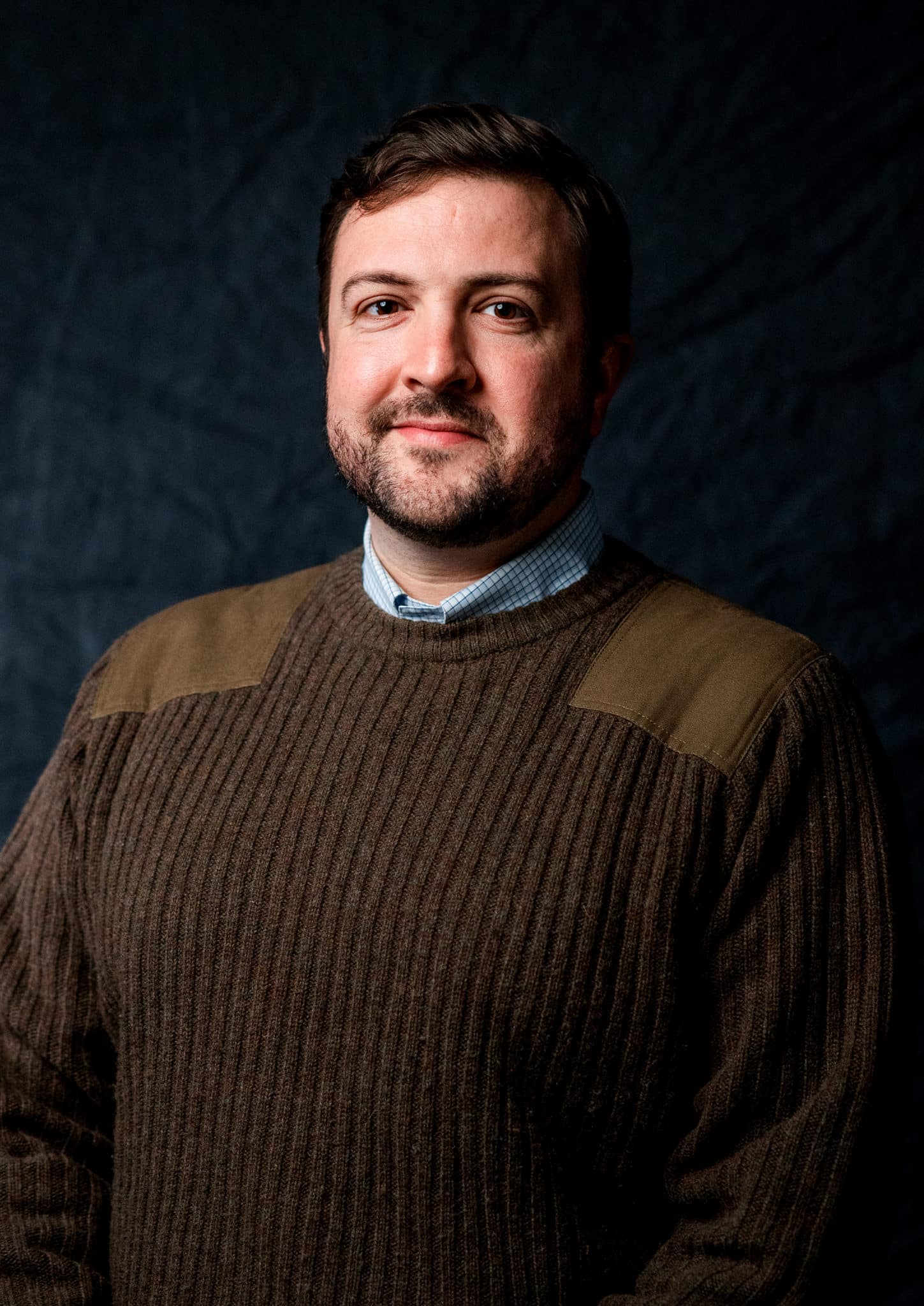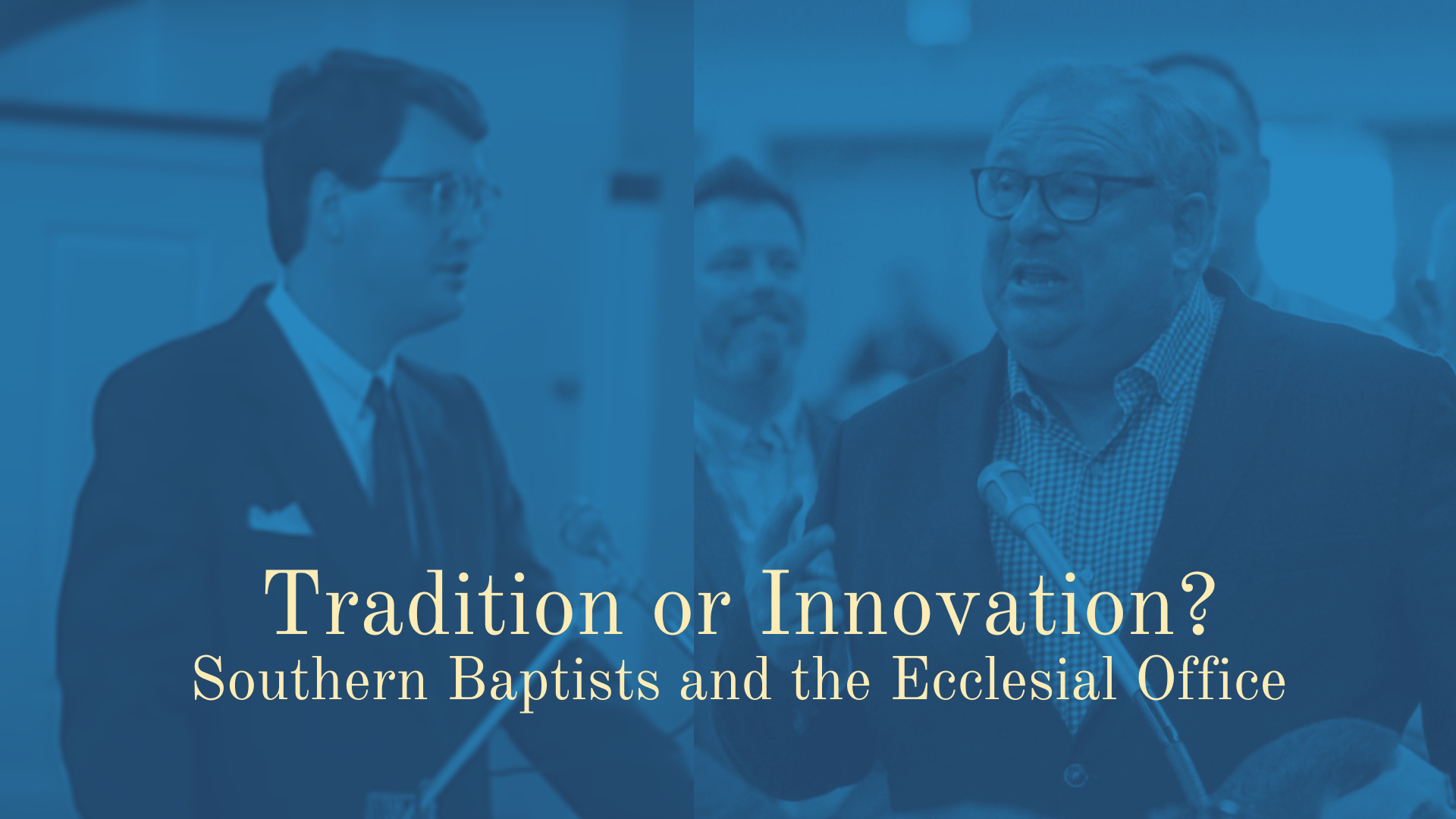July 1858, like so many summer months before, forced the townspeople of Greenville, South Carolina to head indoors during the hottest hours of the day. Although the town sat at nearly 1000 feet of elevation near the base of the Blue Ridge Mountains, the southern heat manifested anyway. People with business in the city transacted their commerce in houses and buildings designed to mitigate the swelter as much as possible, but days above ninety degrees Fahrenheit made their presence felt to the gathered messengers of the South Carolina state Baptist convention. The gathered ministers and laypeople met conterminously with the board of trustees of Furman University. Perhaps the most elite Baptist college in the Deep South, Furman moved to Greenville seven years earlier. Many of the trustees were also convention messengers, so having the meetings in the same city over the same days—July 24-27—made travel arrangements easier. The convention debated generally mundane agenda items. They slightly amended the convention’s constitution. Article II of the revised constitution stated flatly that the first of the convention’s “grand objects” was “the promotion of religious education, and particularly that of pious young men designed for the Gospel ministry.”[1]
Receiving an understanding of gender and church office consistent with their tradition, Southern Baptist practice maintained the position of pastor as an exclusively male ecclesiastical office. Eldership as a male-only office is not novel or innovative; it is consistent throughout Southern Baptist history. Maintenance of male-only office did not stem from slaveholding paternalism nor anything specific to the southern United States’ social order. Instead, Southern Baptists upheld the teachings of the seventeenth-century Calvinistic Congregationalists their churches grew out of. English and later British Congregationalists mandated ordination for anyone who publicly taught Scripture. They announced their conviction that “no man” would be “permitted to preach or puplickly expound the scriptures, who is not ordained a minister.” The received apostolic order laid out in Scripture and practiced in Baptist churches declared only ordained men taught Scripture, and that ordination was given only to men. Late twentieth-century and early twenty-first-century language regarding the church office—senior pastor, executive pastor, worship pastor, etc.—are rhetorical creations used to manage expanding bureaucracies in largely suburban megachurches. Innovation on the offices is traced to the rise of some Southern Baptists’ deep commitment to retaining their sociological place in the liberal capitalist order, and not in a meaningful knowledge of, or practice of, historic Baptist understanding of church offices and their respective qualifications.[2]
Baptists in the United States maintained the historic British practices on officer qualifications, and they held views entirely consistent with Baptists in the rest of the Anglophone world. Baptist understandings of church and the civil order differed somewhat from other Protestants, but Early Republic Baptists in the South reserved ecclesiastical office for men. Nathan O. Hatch noted in his Democratization of American Christianity that the “Dover Baptist Association in Virginia reaffirmed in 1802 that although all members were entitled to certain privileges, none but free male members could exercise any authority in the local church.” Well before the controversy over slaveholding that precipitated the creation of the Southern Baptist Convention, and well before the development of paternalistic thought associated with slaveholding, Baptists believed in male-only clergy. Even as Baptist churches in the South denounced human bondage well into the 1830s, they did not negotiate male clerical leadership.[3]
Baptists did not diverge on ordination qualifications at the Southern Baptist Convention’s inception in 1845. The creation of the Southern Baptist Theological Seminary in the 1850s and the decision to strengthen Furman University’s curriculum in the same decade elevated men like James Petigru Boyce to positions of ecclesiastical prominence. Boyce thought that Southern Seminary would be a Southern Baptist analog to his alma mater, Princeton Seminary. Frontier life created relatively lax practice regarding ordination, and Boyce vented his palpable exasperation with revivalist and populist leadership in churches by insisting on an elite educated ministry for Baptist churches in the South. Boyce particularly hoped for a seminary to provide actual seminary education, instead of outsourcing theological education to Baptist colleges. He proposed the creation of a rigorous Baptist seminary in the hands of “the strong men of our Ministry” who understood the perceived high calling to which they were entrusted. Those who would “furnish material” for ministry in Baptist churches were not only men, but men with education. Boyce’s preferred “class of men” was not a populist group who acceded to the ministry from mere enthusiasm or rhetorical ability, but he preferred instead an even more limited group who had access to what was still relatively rare collegiate educations in the southern states. It was “a body of men” he understood who were pledged to care about theological education. [4]
Francis Wayland joined his masculine conception of a minister’s vocational life with reasons why the state should not support religion. Because ministers were men, they would have to fight off the typically male urges to seek “worldly rank” or “official dignity.” Congregations needed to “arrange the matter of compensation with their clergymen themselves” so that there were “no rich and overgrown benefices,” but so there would also be “but few miserably poor curacies.” The minister, “if he deserve it, generally lives as well as his people.” Baptist pastors, argued Wayland, needed a particular type of “moral hardihood” that could only come through having lived a life that was to some degree abstentious.[5]
Southern Baptist ordination practice has been largely uniform. Examples of women being ordained are rare, and churches that ordain women have generally been disfellowshipped. Devotees of so-called women’s ordination in Southern Baptist ranks typically leave the denomination. Most Southern Baptists, noted Gregory Wills, defined themselves as so-called complementarians, a somewhat contrived late twentieth-century taxonomical definer synonymous with traditional gender roles. Southern Baptists also “believed that God called only certain men to the office of gospel minister, for the scriptures permitted ‘no woman to teach or have authority over men.’” Wills posits that the American feminist movement, an expression of neoliberal social thought that gained prominence in the 1960s, challenged traditional church teaching on gender and the pastorate. Susan M. Shaw, professor of women, gender, and sexuality studies at Oregon State University and a Southern Baptist woman who sought ordination, echoed Wills’ supposition and very openly made Americanist mid-century neoliberal gender norms her central justification for ordaining women. “As the women’s movement began to have influence across society,” Shaw writes, “many churches and individual women began to recognize that if women could be CEOs and university presidents, they could also be pastors and denominational leaders.”[6]
Modern questions over ordination in the United States are often litigated along the lines of subjective rhetoric of spiritual callings and Americanist language of political rights being applied to ecclesiastic leadership. Conversely, Baptist scholars seeking catholicity with the global church and willing to see the broad Western Christian tradition as subordinated but also complementary of the Christian Scriptures have been less likely to innovate on church officer qualifications.
Editor’s Note: The London Lyceum seeks to publish original essays for the purpose of inspiring thinking. Therefore, not all essays and/or authors will hold to our confessional commitments. But as with all our work, we publish a range of viewpoints to encourage thinking.
[1] Minutes of the Twenty-Eighth Anniversary of the State Convention of the Baptist Denomination in South Carolina, Held at Greenville, July 24-27, 1858 (Charleston: James and Williams, 1858), 23.
[2] Matthew C. Bingham, Orthodox Radicals: Baptist Identity in the English Revolution (New York: Oxford University Press, 2019), 58.
[3] Nathan O. Hatch, The Democratization of American Christianity (New Haven and London: Yale University Press, 1989), 107.
[4] James Petigru Boyce, Three Changes in Theological Institutions: An Inaugural Address Delivered Before the Board of Trustees of the Furman University (Greenville, SC: C.J. Elford, 1856), 5, 21, 30.
[5] Francis Wayland, The Elements of Moral Science (Boston: Gould and Lincoln, 1855), 227-228.
[6] Gregory Wills, Southern Baptist Theological Seminary, 1859-2009 (Oxford and New York: Oxford University Press, 2009), 525; Susan M. Shaw, “How women in the Southern Baptist Convention have fought for decades to be ordained” The Conversation, June 2021. https://theconversation.com/how-women-in-the-southern-baptist-convention-have-fought-for-decades-to-be-ordained-161061.
Author
-

Miles Smith IV (PhD, Texas Christian University) is Assistant Professor of History at Hillsdale College. His research is on the U.S. South and the Atlantic world. He generally write on intellectual history—ideas, religion, slavery and freedom, etc.—but occasionally dabbles in political history, too. He is also interested in Europe and in Latin America. He edits nineteenth century works of historical theology and is revising a religious biography of Andrew Jackson. He also sometimes writes for popular outlets like Mere Orthodoxy, The Gospel Coalition, Public Discourse, The Federalist, and The University Bookman.
View all posts




